By Ana Rodriguez Soto - The Archdiocese of Miami
Photography: ANA RODRIGUEZ-SOTO | FC
MIAMI GARDENS | Marian Center clients and staff welcomed a very special guest this week: Florida Gov. Rick Scott.
The governor stopped by for about an hour July 13 to ceremonially sign into law the ABLE Act, which stands for Achieving a Better Life Experience for people with disabilities. Joining the governor at the event were representatives of Florida’s Agency for Persons with Disabilities and of community organizations that serve them throughout the state.
Taking its cue from a similarly named federal law passed in 2014, the ABLE Act allows Floridians with disabilities such as autism, Down syndrome and cerebral palsy to create tax-free savings accounts to cover housing, education, medical, job training and transportation expenses. The money in these accounts will not disqualify them from receiving other government benefits.
“The Church supported this bill,” said Archbishop Thomas Wenski, who attended the ceremony at the Marian Center. He said without the ABLE Act people with disabilities were in a “kind of catch-22” if they obtained a job.
“You don’t want to punish them” for being employed or saving money, the archbishop said.
Seven of the 75 developmentally disabled adults who attend the Marian Center’s adult day training program hold part-time jobs in the community, said Barbara Psinakis, director of adult programs at the center. Some of them have been working at those jobs for as long as 20 years.
The center also used to get contract work that its clients could perform, such as cleaning and re-wrapping the headphones used by airlines.
“It’s very hard to get jobs in-house anymore,” said Psinakis, since so much of that type of work has been automated or outsourced to other countries.
Right now, the Marian Center’s adult clients have one such in-house job: packaging hairbrushes. “When the work comes in, the money goes to them,” said Psinakis.
Before the bill-signing, she led Gov. Scott on a brief tour of the Marian Center’s adult day training facility. It includes a ceramics section where clients hand paint ornaments and religious articles. These are sold to the public to help support both the clients and the Marian Center.
Psinakis noted that government initiatives such as the ABLE Act, and increased funding for job-training and employment programs for the disabled, “will help us serve more people.”
Scott said that his administration has appropriated $96 million over the past three years to reduce the backlog of people with disabilities who were on a waiting list for services when he took office.
The goal is to ensure that “everybody critical will get off the waiting list,” he said.
This year’s budget also gives the Agency for Persons with Disabilities a record $1.2 billion to distribute among the more than 6,000 accredited providers, such as the Marian Center, that serve more than 50,000 Floridians with disabilities.
The goal, Scott said, is to “create more opportunities for all Floridians to get a great education and a great job.”
“There were 50,000 people on the waiting list when he became governor,” said Barbara Palmer, director of the Agency for Persons with Disabilities.
Over the past two years, the governor and legislature also have appropriated $2 million for increased job training and job placement programs for the disabled, Palmer said.
“It’s all about the children, the clients that we serve here,” Archbishop Wenski said. “We try to give of ourselves to them but they give so much to us.”
He added that Sister Lucia Ceccotti, the founder and longtime executive director of the Marian Center who died in 2013, must be “happily looking down from heaven” at the event.
Sister Lucia was one of the original Sisters of St. Joseph Benedict Cottolengo who came from Italy at the request of Archbishop Coleman F. Carroll to establish and staff the Marian Center back in 1963. Four Cottolengo sisters still staff the Marian Center, including one � Sister Carla Valentini � who formed part of the original group.
Aside from the adult day training facility, the Marian center includes a fully accredited school for students ages 6 to 21 with developmental disabilities such as Down syndrome; a fulltime residential facility for women with developmental disabilities; and offers occupational, speech, physical and behavioral therapies for both students and clients.
Psinakis said the Agency for Persons with Disabilities suggested the Marian Center as the place for Gov. Scott to sign the bill.
“They know us. They know what we do here,” she said. “I am very grateful. It’s quite an opportunity for us to be able to host this.”
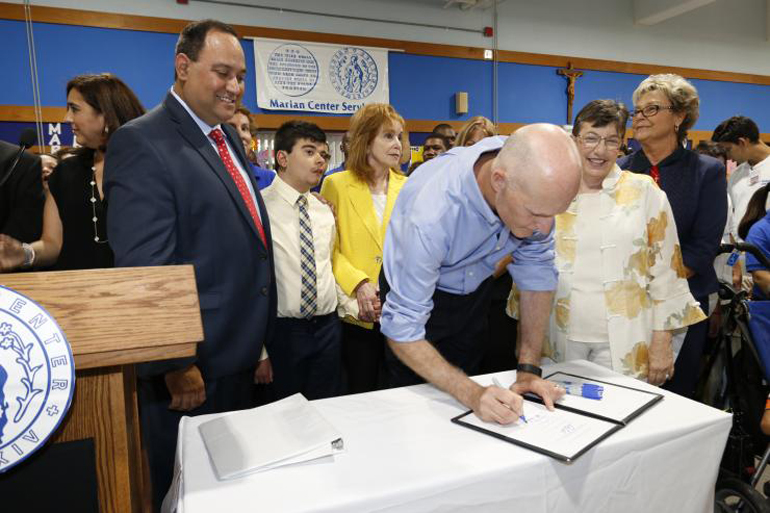
Photographer: ANA RODRIGUEZ SOTO| FC
Gov. Rick Scott symbolically signs into law the ABLE Act (Achieving a Better Life Experience), which creates a trust fund to help disabled children and adults obtain services such as therapy and job training. Looking on are state Rep. Ray Rodrigues, left, of Fort Myers, state Sen. Eleanor Sobel of Miami-Dade and Broward counties, center, and Barbara Palmer, far right, director of the state Agency for Persons with Disabilities.
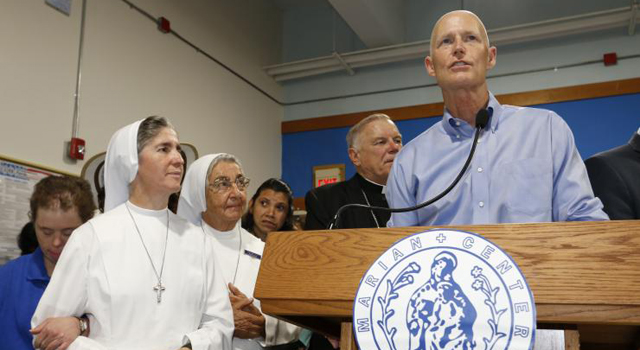

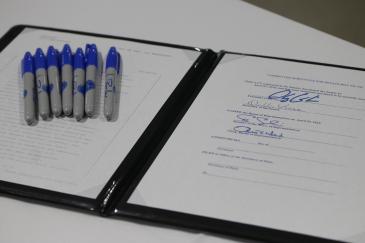
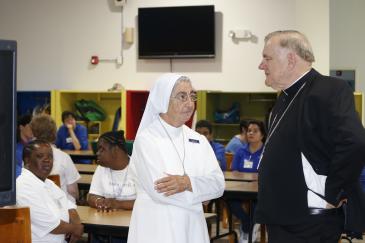
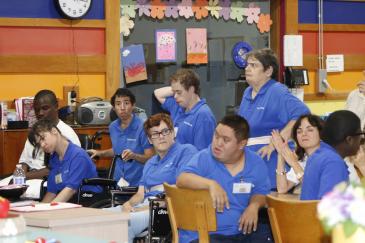
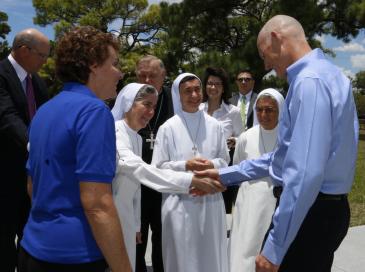
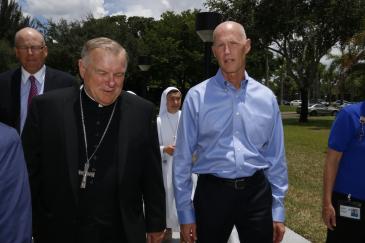
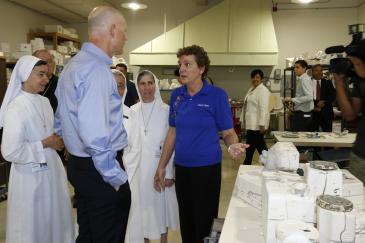
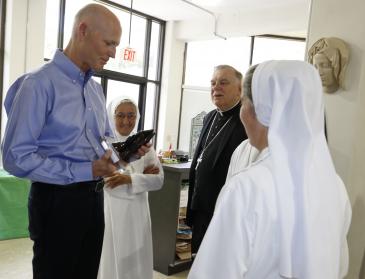
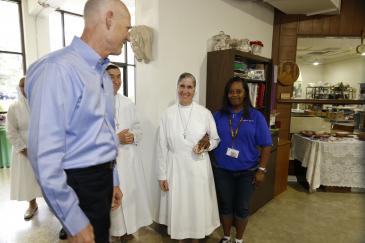
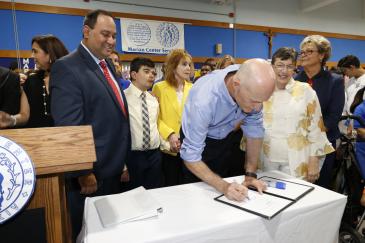
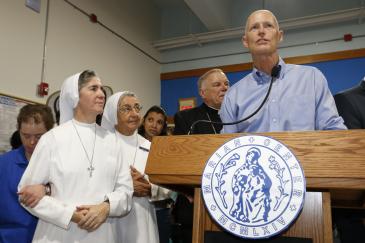
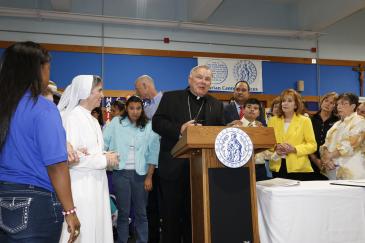

Comments from readers